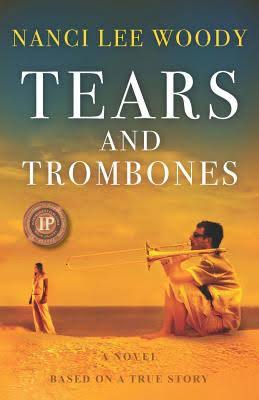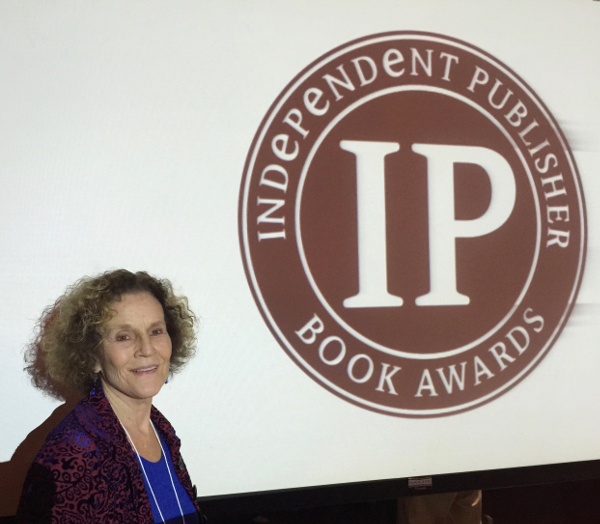An IPPY Winning Book
Nanci Woody's novel, Tears and Trombones, won a 2016 medal for West Pacific fiction.

Tears and Trombones, by Nanci Woody (Sand Hill Review Press)
Feature
Giving and Receiving Feedback, The Smart Way
An IPPY Winner on Criticism
 It’s not pleasant hearing your writing doesn’t sit well with a reader after you’ve spent countless hours - maybe even days, weeks, possibly years - on the piece. A publisher or an agent or a member of your writing group says, “This part of your story isn’t believable.” Or, “Have you checked your facts? I think the Bay Bridge opened in 1936.” Or, the worst, “What is it you’re trying to say here?”
It’s not pleasant hearing your writing doesn’t sit well with a reader after you’ve spent countless hours - maybe even days, weeks, possibly years - on the piece. A publisher or an agent or a member of your writing group says, “This part of your story isn’t believable.” Or, “Have you checked your facts? I think the Bay Bridge opened in 1936.” Or, the worst, “What is it you’re trying to say here?”
After spending seven years researching, interviewing, writing and re-writing every word of my novel, Tears and Trombones, I thought it was nearly perfect. I sent it off to a publishing house, envisioning it in the top one hundred at Amazon.
However, it turned out it wasn’t perfect. The publisher sent it back with a terse letter. “This story just doesn’t grab me. It needs more narrative. I suggest you read these novels to get some insight into . . . blah blah blah.”
After I had time to think about it and admit that maybe she was right (my novel did resemble a stage play), I read her suggested titles. They were not books I would normally read, but I got the idea. It wasn’t my nature to go on and on about what kind of house my characters lived in, how they wore their hair, what they ate, what kind of dog followed them around. Upon reflection, I thought, So, what does the dog look like? I hoped I had it in me to alter my dialogue-heavy tendencies. I spent another twelve months going through every page of the book and adding narrative wherever it would enhance the story.
When I sent the novel to the same publisher the following year, I got not a letter, but a phone call. “OK. Let’s go with it!” I signed my contract and finally, I was finished. Well, as it turned out, not quite. My perfectionist nature (criticism from myself) forced me to go over every word in the book again, and not just once. Even after publication, I made changes for the next reprints.
What I’ve painfully learned is, when a writer asks for feedback, she or he must be open to receive it. It will not all be positive, which is a good thing. Without honest feedback, how can you improve your work?
The worst response from a writer is a defensive one. Thank your critics for their insight. When you’ve had a chance to reflect on the criticism, you may or may not find the suggestions relevant. Some ignorable criticisms I have received include, “There’s enough sadness in the world. Can’t you make your story happier?” or “I got so mad at your protagonist, I wanted to throw the book across the room.” You get the idea.
Such criticisms actually make me feel good. I want my readers to have strong emotions. If they don’t, I think I’ve failed. One of the greatest reviews I ever got is, “I locked myself in the toilet so I wouldn’t be bothered. I couldn’t put the book down.”
I spent a few thousand dollars once to attend a four-day workshop in San Francisco with nine other writers and a well-known editor. He was brutal in his criticism, had no problem letting his teary-eyed attendees know they weren’t best-selling authors like Jennifer Egan, Joyce Carol Oates or Tobias Wolff, all of whom had attended his previous workshops. I felt like a fool for having paid so much money to be treated like an unaccomplished novice, to have my writing flaws spread out on the table in front of all present.
Yet, when I got over my considerable anger with Mr. Head-Chopping Editor, I remembered his pointed question about one of my main characters. “You don’t like this guy at all, do you?” He hit on something important I had missed. I had written the perfect caricature of a drunken, cruel father. The next few months I spent going over every father scene in the book, adding new chapters to make him multi-dimensional. Nobody, it is said, is all bad, though this father is still not lovable.
Mr. Expensive Editor didn’t like my love scenes, either. As he so crudely put it, “These wouldn’t make any reader hard or wet.” I’m quite sure you could find a better way to convey that sentiment, yet I did work over all the romantic encounters and I’m proud to say that now . . .
So, while my costly San Francisco workshop was painful at times, my novel was better after it than before. Still, I think the most constructive feedback is given with positive comments first, followed by a carefully worded, thoughtful, non-hurtful critique. Imagine yourself on the receiving end.
Giving criticism requires thought and compassion. Receiving it requires little of you other than a thick skin. Here’s what I’ve learned.
- Consider carefully the source. Not every reader wants you to succeed.
- Do not defend your writing or make excuses.
- Listen carefully with an open mind.
- Solicit feedback from people who are familiar with your genre.
- Make changes where you think the critic’s suggestions will improve your work. Ignore the others.
- Pay close attention to comments about historical inaccuracy.
- If you are criticized for grammar or spelling, you haven’t done your job.
And finally, remember that nobody knows what needs to be said better than you. Also remember that sometimes we, as writers, are so familiar with our story that we fail to see the holes in it. Be thankful when someone else sees them before you send it off for publication.
A footnote to the story is that Tears and Trombones, my tale of a boy’s struggle to overcome his boozy father’s cruelty to become a classical musician, went on after publication to win an IPPY (Independent Publishers) medal for “Best Fiction in the Western Pacific Region.”
In my acknowledgements, I thank the people who read and offered suggestions for improvement. There are a lot of them.
 Nanci Lee Woody was a college professor, author of textbooks in math and accounting, and Dean of Business at American River College. Her first novel, Tears and Trombones, won an IPPY medal for West Pacific fiction.
Nanci Lee Woody was a college professor, author of textbooks in math and accounting, and Dean of Business at American River College. Her first novel, Tears and Trombones, won an IPPY medal for West Pacific fiction.
Nanci has published short stories and poetry both in print anthologies and online. She wrote the book and lyrics for a musical, “Hello to Life!,” and produced it in collaboration with her husband, a musician.
Her artwork has appeared in numerous juried shows in the Sacramento area and in the KVIE (PBS) annual on-air fundraising auctions.
For reading and art samples – nancileewoody.com. Tears and Trombones is available on Amazon.com.

